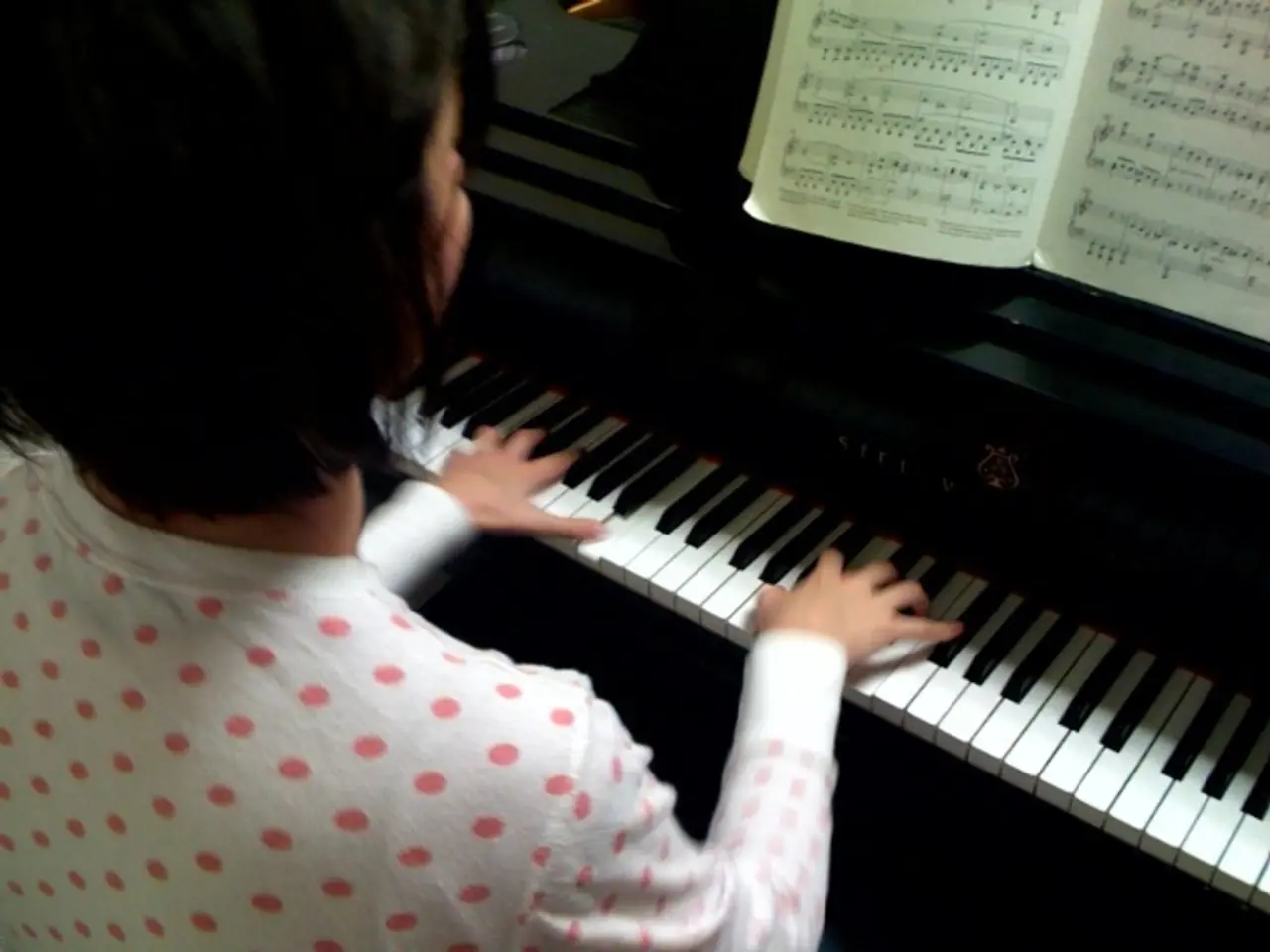Practicing Piano with Consciousness: Strategies to Maintain Presence and Lower Stress Levels
For those just starting out on their piano journey, incorporating mindful practices can significantly reduce stress and improve focus. Here are some strategies to enhance your piano learning experience:
Proper Posture and Physical Awareness
Sit comfortably with a straight back, relaxed shoulders, and feet flat on the floor or on a footrest. This helps maintain energy efficiency, reduces strain on your body, and enhances technique. Engage your core and maintain awareness of your body position during practice to prevent injury.
Breathing Techniques
Before starting to play, take a few deep breaths to calm your mind and body. This helps reduce stress and improves focus. Pause occasionally during practice to breathe deeply, allowing your mind to refresh and focus.
Mindful Practice Sessions
Focus on one piece or technique at a time. Being fully present and mindful of what you are playing can help improve retention and reduce stress. Short practice sessions, even just 5 minutes, can be effective if done mindfully and with focus.
Qigong and Mindfulness Exercises
Incorporate Qigong exercises to enhance physical health, mental clarity, and emotional well-being, which can positively impact your piano playing.
Self-Assessment
Record your practice sessions to assess your progress and identify areas for improvement. Listening to your recordings can help you stay focused on your goals.
Creating a Conducive Space
Ensure your practice space is quiet and free from distractions. This helps maintain focus and reduces stress.
Mindful Observation
Observe thoughts without judgment during practice. Acknowledging and accepting thoughts can make piano practice more peaceful and less stressful. Shifting attention back to playing after noticing distractions is part of mindful piano practice.
Taking Breaks
Taking breaks between challenging pieces or awkward sections to breathe can help refocus and prevent rushing through notes.
Introspection and Gratitude
Take a minute or two at the end of each session for introspection. This can help maintain a positive mindset and motivation. Practicing gratitude at the end of each session can also help maintain a positive mindset and motivation.
Relaxation and Stretches
Relax tense areas in the hands, shoulders, or neck before piano practice. Hand, arm, and shoulder stretches can signal the brain to fully engage in music and let go of other concerns.
Online Resources
Online psychic chat can provide spiritual recommendations for practicing mindfulness. Journaling about piano practice sessions can help track progress and remind of the progress made through mindful practice.
By incorporating these mindful practices, beginners can enjoy a more fulfilling and stress-free piano learning experience.
- For beginners, incorporating mindful practices like proper posture, breathing techniques, and mindful practice sessions can help reduce stress and improve focus during piano lessons.
- Qigong exercises can enhance physical health, mental clarity, and emotional well-being, which can positively impact piano playing for those taking piano lessons.
- Self-assessment through recording practice sessions and introspection can help improve retention, identify areas for improvement, and maintain a positive mindset during piano lessons.
- Assessing your progress through journaling about piano practice sessions can help track your growth and reinforce the benefits of mindful practice.
- Practicing mindfulness also involves mindful observation, acknowledging and accepting thoughts during practice, and shifting focus back to playing when distractions arise.
- Incorporating online resources, such as online psychic chat for spiritual recommendations and fitness-and-exercise or health-and-wellness routines for relaxation and stretching, can further enhance the mindful piano learning experience.




